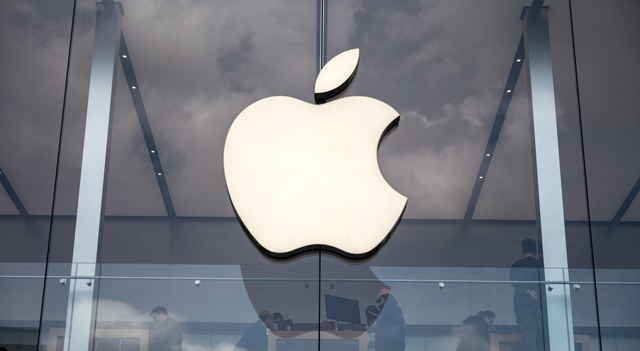Apple is currently in discussions to incorporate Google’s Gemini AI tool into its iPhone, according to insiders familiar with the matter who spoke to Bloomberg News. This potential collaboration signals a groundbreaking deal that could significantly disrupt the AI industry landscape.
The tech behemoths are actively negotiating to allow Apple to license Google’s Gemini, a suite of generative AI models, to power upcoming features in this year’s iPhone software update. The sources, who requested anonymity due to the private nature of the talks, also revealed that Apple had considered using OpenAI’s model after recent discussions with the company.
Should the negotiations between Apple (NASDAQ:AAPL) and Google (NASDAQ:GOOG) reach fruition, the partnership would build on an existing search agreement wherein Google has paid Apple billions annually to remain the default search engine on Safari and other Apple devices.
Details regarding the terms, branding, and implementation of the potential AI agreement remain undecided, according to the informants.
Following the news, Alphabet’s shares saw a surge of up to 7.4% in early trading in New York, marking the most significant intraday gain since February 2, 2023. Apple’s stocks also experienced a 2.2% increase.
A successful deal would position Gemini for widespread adoption, potentially reaching billions of users. However, it could also indicate that Apple’s AI capabilities might not be as advanced as anticipated, possibly inviting further antitrust scrutiny for both companies.
Apple is preparing to introduce new features with iOS 18, the forthcoming iPhone operating system update, leveraging its own AI models. However, these enhancements will focus on device-based functionalities rather than cloud-delivered services. Thus, Apple is seeking a partnership to manage the heavy lifting of generative AI, including capabilities for image creation and essay writing from simple prompts.
Representatives from Apple and Google have declined to comment, and OpenAI has not immediately responded to inquiries.
Apple has been experimenting with its large language model (LLM), codenamed Ajax, and a basic chatbot dubbed Apple GPT since early last year. However, insiders suggest that Apple’s technology still lags behind Google’s and other competitors, making a partnership a more viable option.
A deal with Apple would significantly boost Google’s Gemini, potentially integrating it into over 2 billion active Apple devices. Samsung has already introduced new smartphones featuring Gemini-powered AI capabilities in January.
Bloomberg Intelligence suggests that Apple’s potential use of Google Gemini for generative AI inference could mitigate the risk of losing market share in search to Apple in the short term. The current search agreement with Google, which involves a $20 billion traffic acquisition cost on iOS devices, gives Google a competitive edge over generative AI search competitors, including those relying on Bing for real-time web page links.
However, a collaboration between the Silicon Valley giants is likely to attract regulatory attention. The existing Google-Apple search deal is already the subject of a U.S. Department of Justice lawsuit, alleging that the companies have colluded to dominate the mobile device search market.
As regulatory pressures mount and AI becomes more ubiquitous, the current search agreement may become less lucrative. A new AI-focused deal could help offset this potential decline.
Microsoft’s (MSFT) multi-billion dollar investment in OpenAI has also drawn regulatory scrutiny, with the Federal Trade Commission investigating whether the deal violates antitrust laws.
While talks between Apple and Google are ongoing, any formal announcement is unlikely before Apple’s annual developer conference in June. The companies might not reach an agreement, or Apple may choose another generative AI provider, such as OpenAI, or potentially partner with multiple entities as it does with web search providers.
Other generative AI providers, like Anthropic with its Claude chatbot, remain in the mix. Despite the excitement around Gemini, it has faced controversies, such as inaccuracies in AI-generated images’ racial representations, which Google CEO Sundar Pichai deemed “completely unacceptable,” leading to a temporary halt in image generation.
Apple CEO Tim Cook has promised a significant AI announcement this year, hinting at transformative features that will introduce new paradigms. As investors seek new growth avenues for Apple, which recently shelved an autonomous car project, the focus on AI becomes increasingly crucial. Cook’s personal use of ChatGPT and cautious approach to AI deployment reflect the company’s strategy of deliberate and thoughtful integration of AI features, potentially minimizing platform liability by outsourcing generative AI capabilities to partners like Google.
